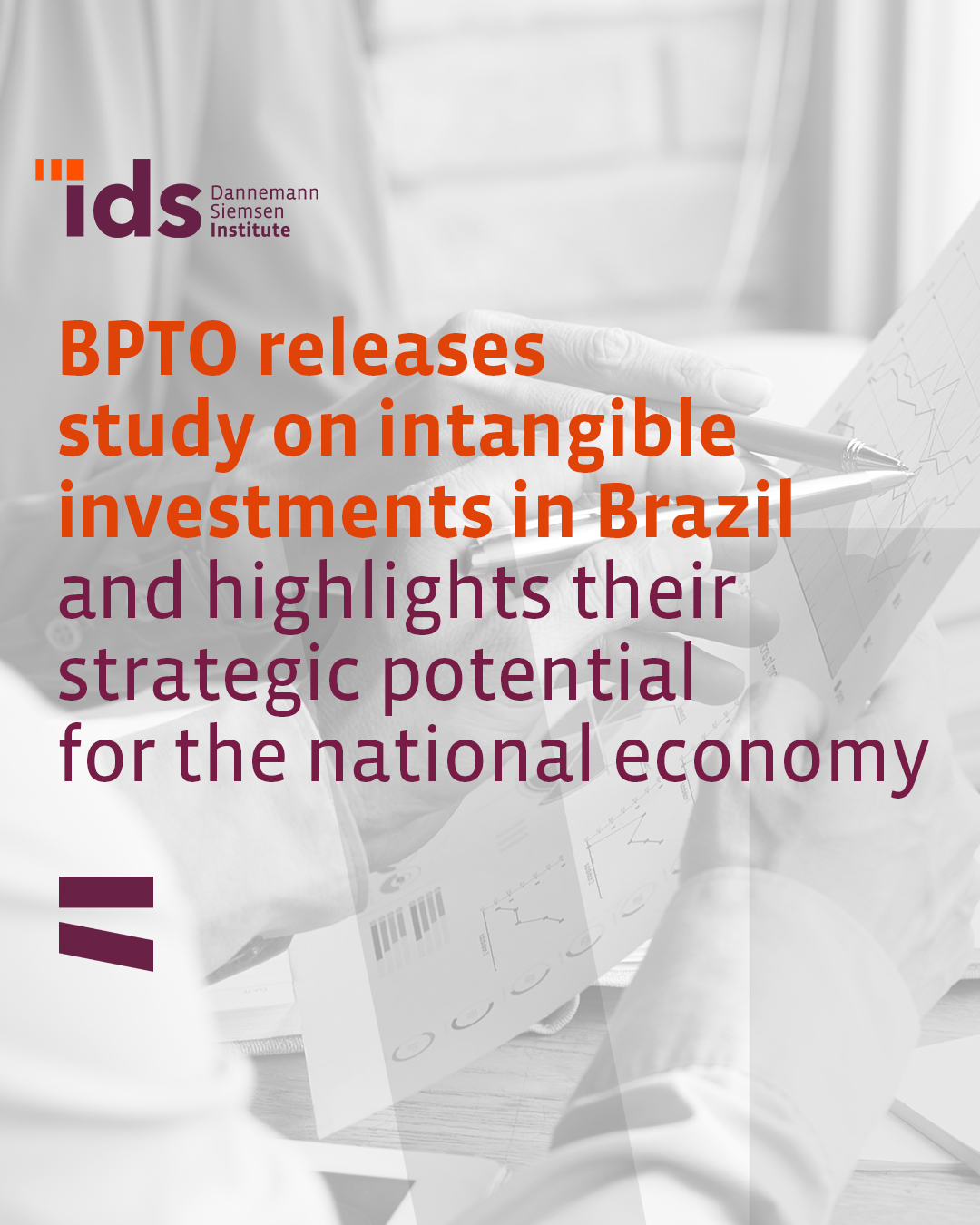22 de julho de 2025
Share
BPTO releases study on intangible investments in Brazil and highlights their strategic potential for the national economy
On July 9, 2025, the Brazilian Patent and Trademark Office (BPTO) published the study entitled “Brazil in the Global Context of Investments in Intangible,” which complements the World Intangible Investment Highlights (WIIH) 2025 report released on the same date by the World Intellectual Property Organization (WIPO). This study aims to analyze Brazil’s position within the global landscape of investments in intangible assets, as well as to highlight the growing significance of these assets for the Brazilian economy.
Initially, the document reveals that between 2010 and 2021, investment in intangible assets in Brazil grew at an annual rate of 2%, while investment in tangible assets declined by 0.8%. From 2020 to 2021, an acceleration was observed, with intangible investments increasing by 14% and tangible investments by 8%. As a result, in 2021, intangible assets accounted for 47% of the total investment in the Brazilian economy.
Subsequently, the report underscores that intangible assets have sustained the overall investment in the economy. For instance, from 2020 to 2024, the total investment in the country grew by 12%; notwithstanding marginal growth in tangible assets, intangible assets increased by 23%, thereby contributing to the mitigation of a more severe investment deficit and fostering productivity gains.
The study further indicates that the intensity of investment in intangible assets in Brazil is approximately 8.5% of the Gross Domestic Product (GDP), a ratio higher than that of countries such as Spain and Poland, and superior to traditional economic sectors such as agriculture (7.7%) and mineral extraction industry (5.5%). Moreover, in absolute terms, Brazilian intangible investment reached USD 244 billion in 2021, surpassing the figures of economies including Spain, the Netherlands, and Sweden.
Among the categories of intangible assets, the document points out that trademarks represent approximately 25% of Brazil’s total intangible investment, a percentage significantly higher than the global average of 15%. This prominence reflects the national emphasis on branding and reputation as strategic components of corporate value. However, a substantial portion of intangible assets remains unrecognized as investment according to the official methodology of the National Accounts System: it is estimated that between 65% and 70% of Brazilian intangible investment is not captured by official statistics.
Within this universe of “invisible” assets to the GDP, the study highlights industrial design, occupying the third position with 21.4%, surpassed only by organizational capital (39.8%) and trademarks (38%). This demonstrates that industrial design represents a significant share of what is not yet formally incorporated into Brazilian economic statistics, despite its expressive role in product differentiation and innovation.
Finally, the report asserts that the enhancement of intellectual property valuation is fundamental to expanding investment in intangible assets and aligning Brazil with the standards of more advanced economies. Achieving this requires institutional efforts, dissemination of evidence, and strengthening of valuation mechanisms.
The study is accessible via the following link: Brazil in the Global Context of Intangible Investments.
Note: For quick release, this English version is provided by automated translation without human review.
